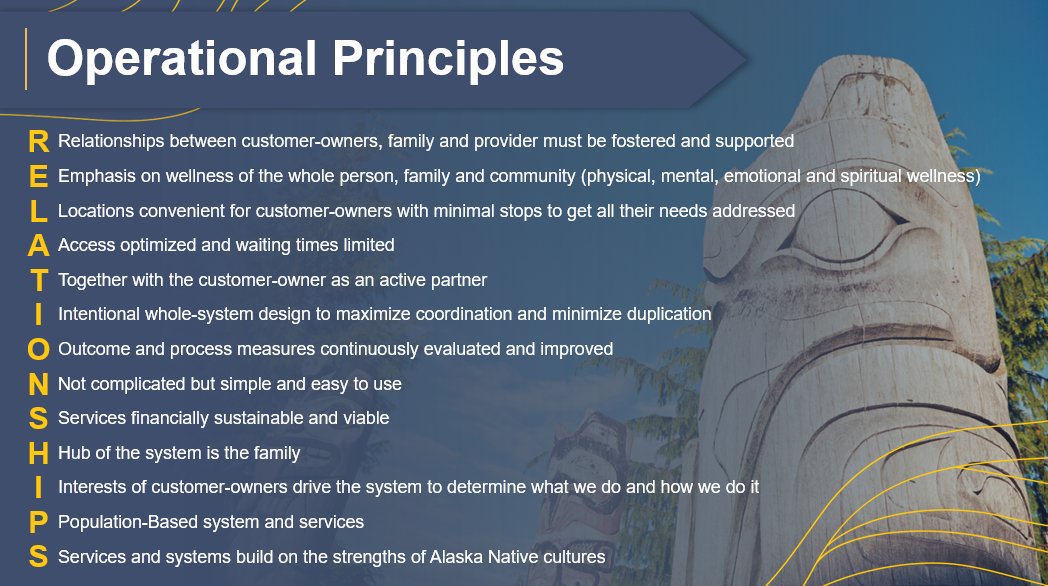Just joining this @NHSElect webinar on Systems Thinking in QI with @RobinD100 and @GarethCorser
#SystemsThinking #QI #QITwitter
#SystemsThinking #QI #QITwitter
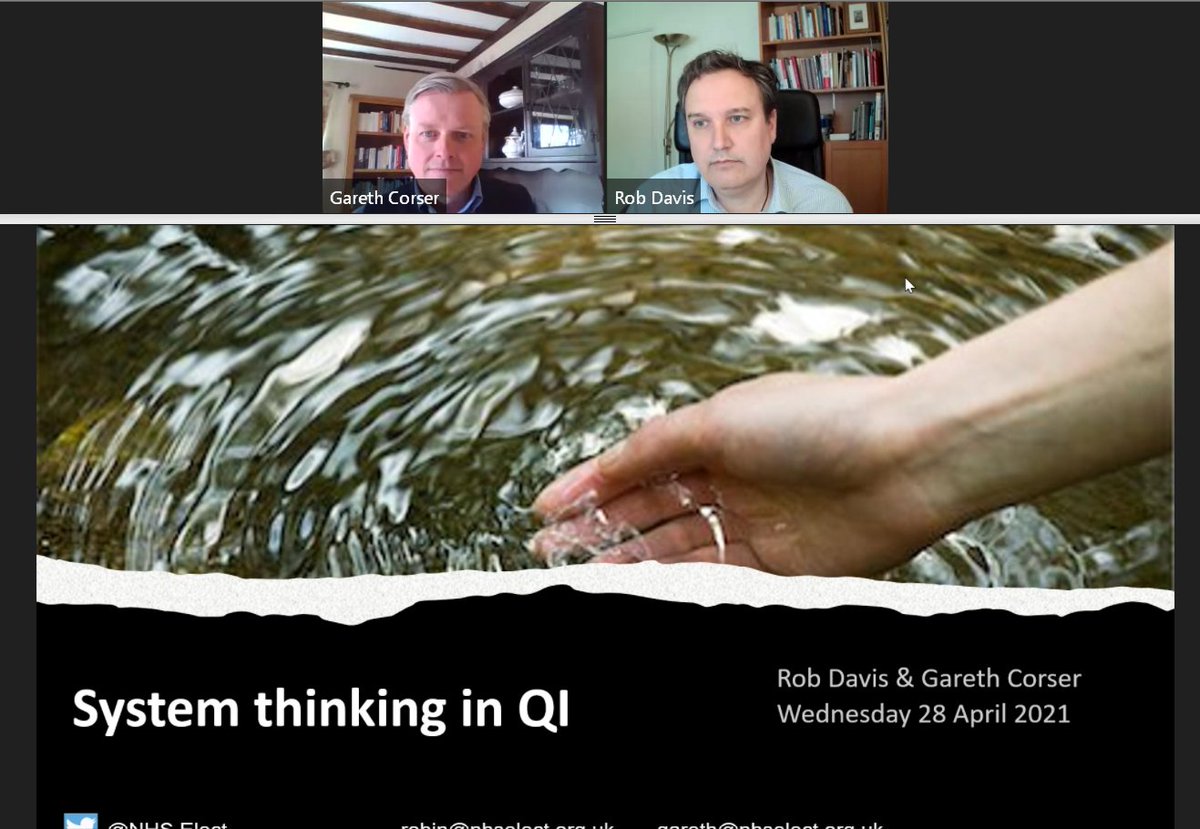
I want to share some of the fabulous stuff I picked up in today's Systems Thinking in QI webinar with the wonderful presenting duo, @RobinD100 & @GarethCorser
What is a system? And how can we apply systems thinking to Quality Improvement?
@NHSElect
#QITwitter
What is a system? And how can we apply systems thinking to Quality Improvement?
@NHSElect
#QITwitter
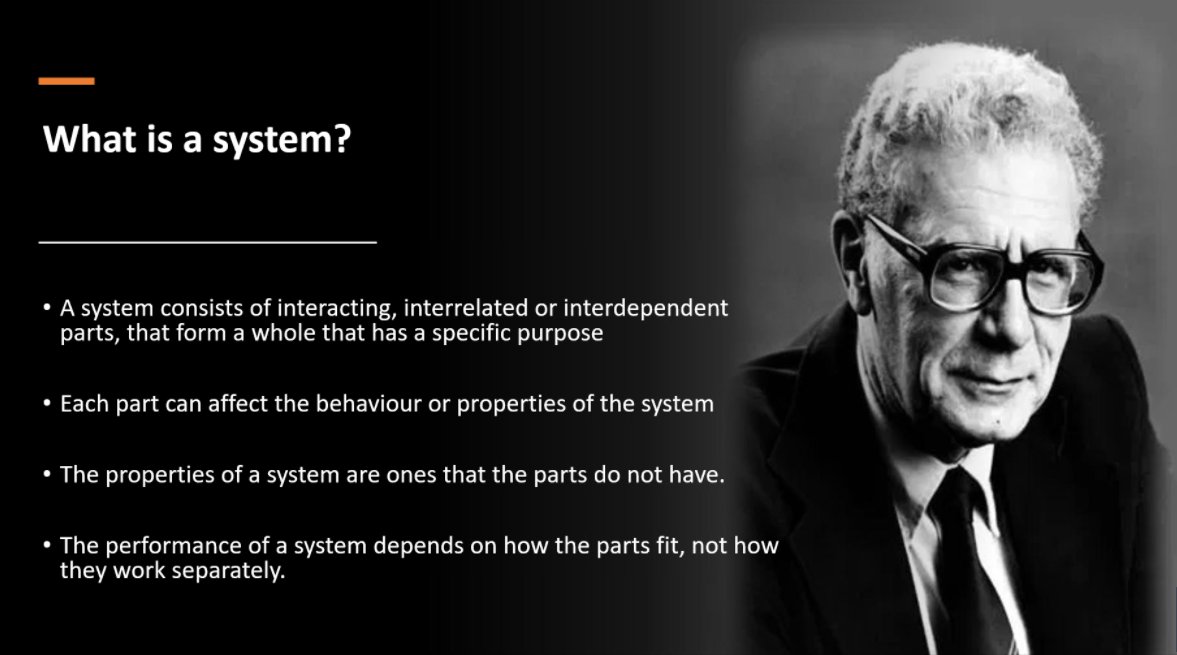
Traditional analysis focusses on linear processes & breaking down problems into component parts. But there are also relational influences within a system where variation in a systems part influences other parts of the system which may influence each other in turn.
#QITwitter



#QITwitter
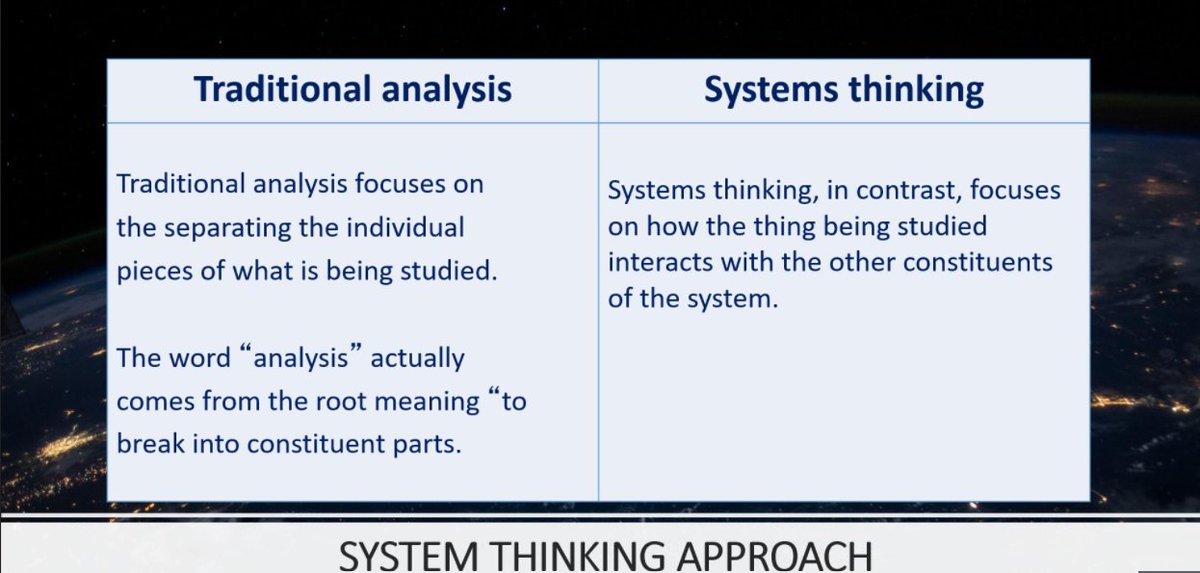
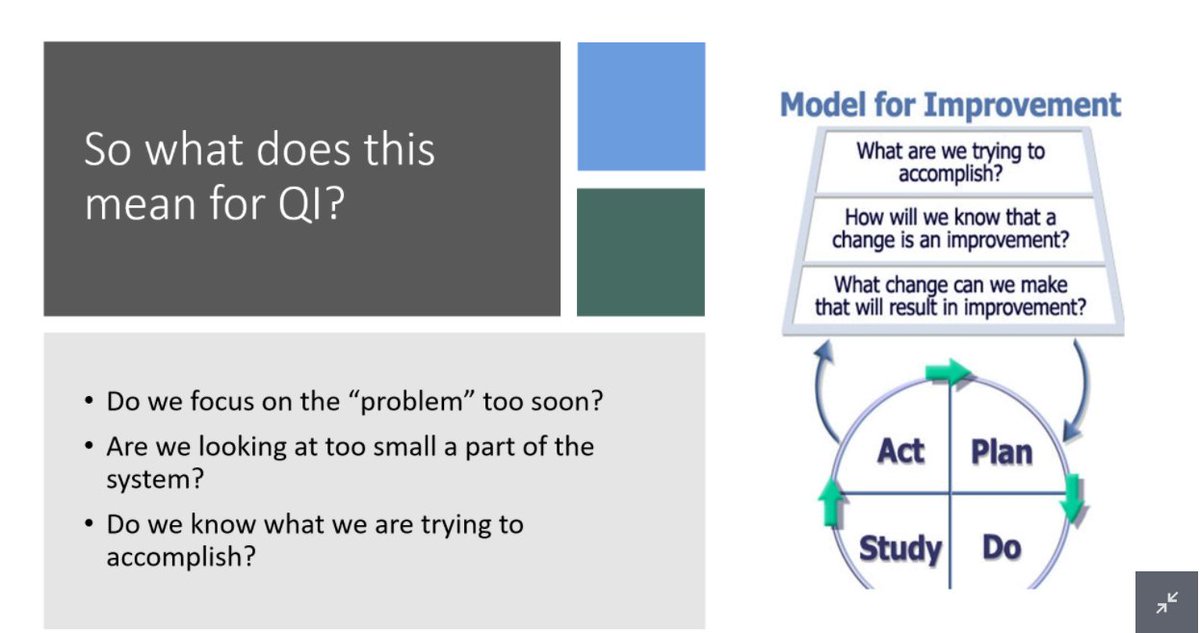
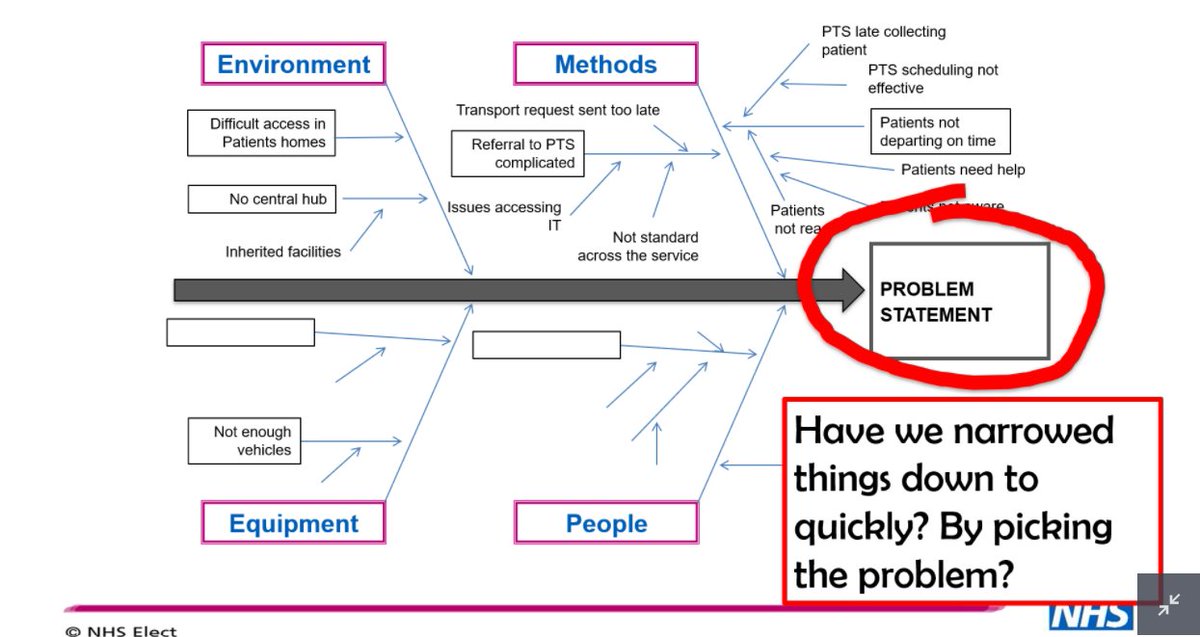
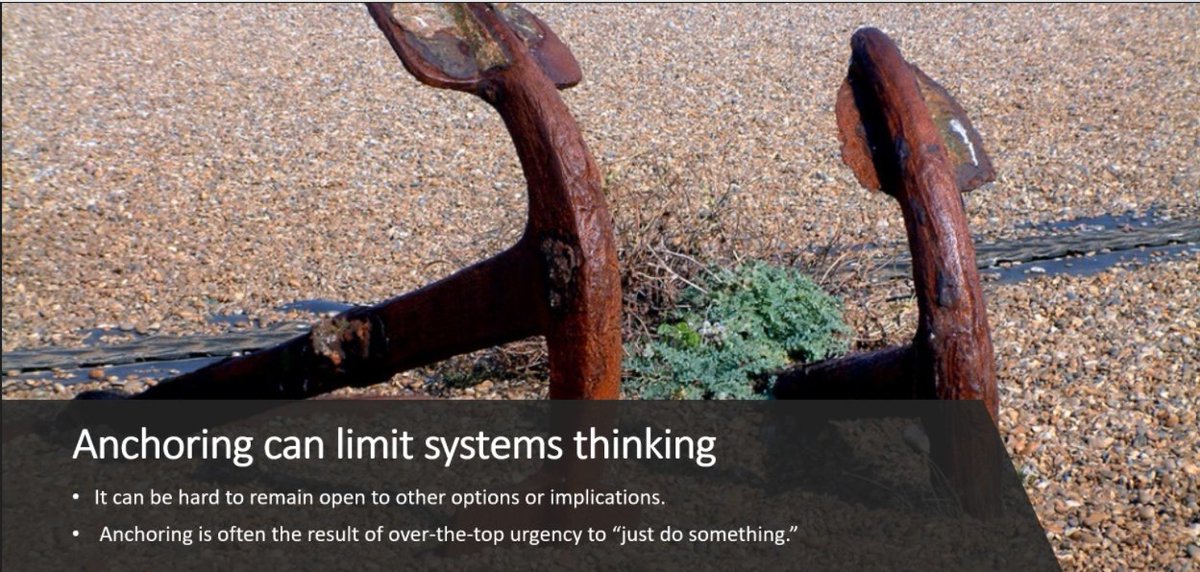
Are we solving problems or passing them on to another part of the system?
Understanding how individual system component work wont necessarily fix a problem, as the relationships between the system components and the way they influence each other are important too.
#QITwitter
Understanding how individual system component work wont necessarily fix a problem, as the relationships between the system components and the way they influence each other are important too.
#QITwitter
Loved this example from @GarethCorser...
What charges your phone? Is it the cable? The plugging it into the wall? The electricity? Each component alone cannot charge the phone - it's is a system of which some parts are visible and some are not and how they interact
#QItwitter
What charges your phone? Is it the cable? The plugging it into the wall? The electricity? Each component alone cannot charge the phone - it's is a system of which some parts are visible and some are not and how they interact
#QItwitter
@HelenBevanTweet says we should start by asking "Who are our people?"
@GarethCorser says we should then start by asking "How do we all see it? (problem/situation)"
Actively aim to understand diverse perspectives, recognising & showing awareness to bias/assumptions.
#QITwitter
@GarethCorser says we should then start by asking "How do we all see it? (problem/situation)"
Actively aim to understand diverse perspectives, recognising & showing awareness to bias/assumptions.
#QITwitter
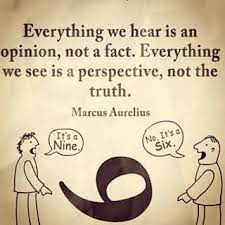
Some useful questions:
Q - How are our biases affecting how we see things?
Q - How do we arrive at our conclusions and our view of the world?
We all filter data by applying bias, meaning and assumption based on our own experience of the world
#QITwitter
Q - How are our biases affecting how we see things?
Q - How do we arrive at our conclusions and our view of the world?
We all filter data by applying bias, meaning and assumption based on our own experience of the world
#QITwitter
We can actively encourage people to #WorkOutLoud and share their thought processes.
Alongside the visible data we see, there are lots of invisible influences taking place inside all of our minds not shared with others, that affect decisions, direction and action
#QITwitter
Alongside the visible data we see, there are lots of invisible influences taking place inside all of our minds not shared with others, that affect decisions, direction and action
#QITwitter
If shown a graph with data we as humans will create a story/fill in the gaps about what it means - this data may be fictional. Do we do that with real graphical data? Do our biases affect how we see and interpret information?
#QITwitter
#QITwitter
The Ladder of Inference is a helpful tool. Here are some images of it in use from @GarethCorser
We can use this to work our way through these thought processes and see how outcomes can differ as a result
#QITwitter



We can use this to work our way through these thought processes and see how outcomes can differ as a result
#QITwitter
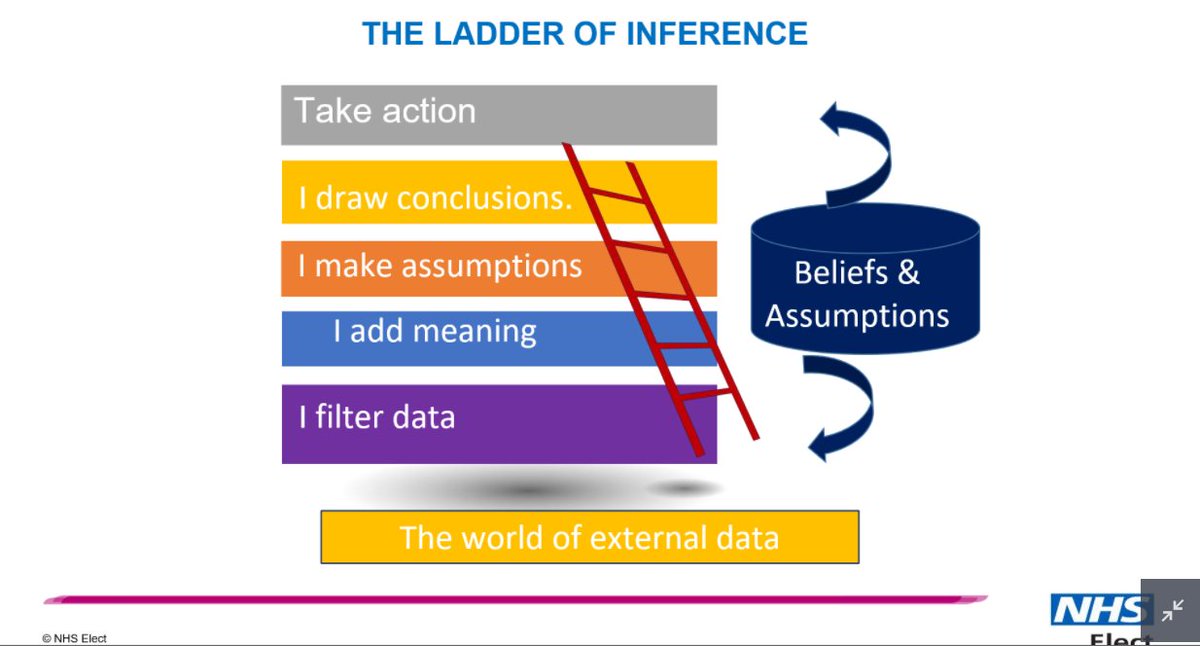
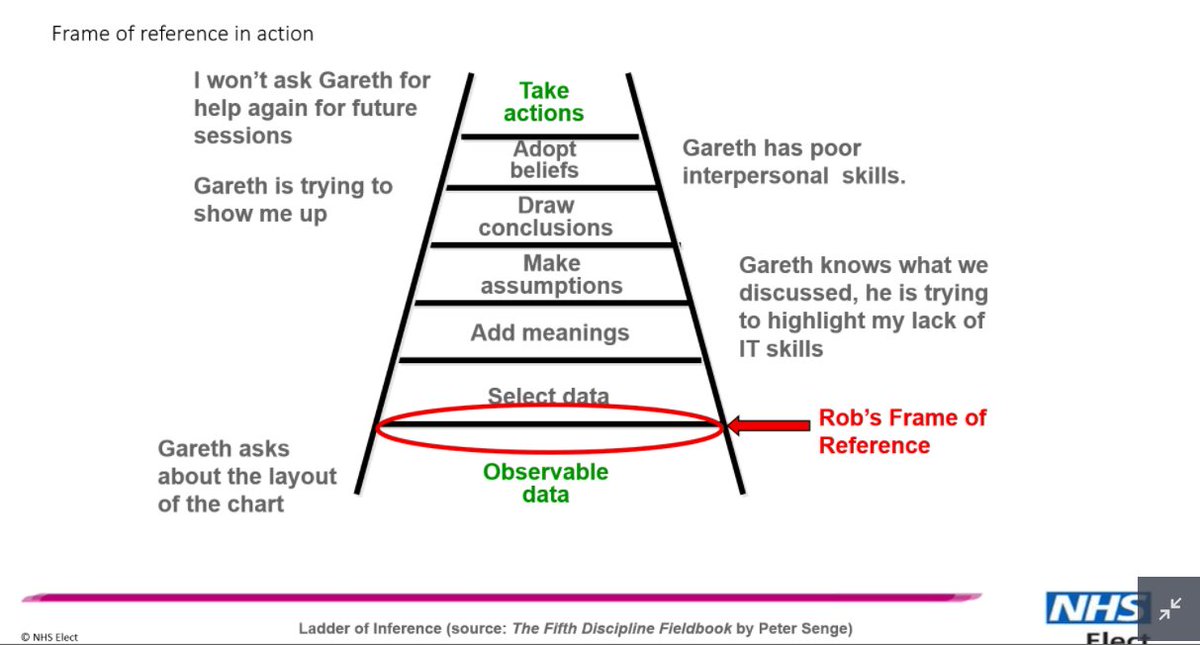
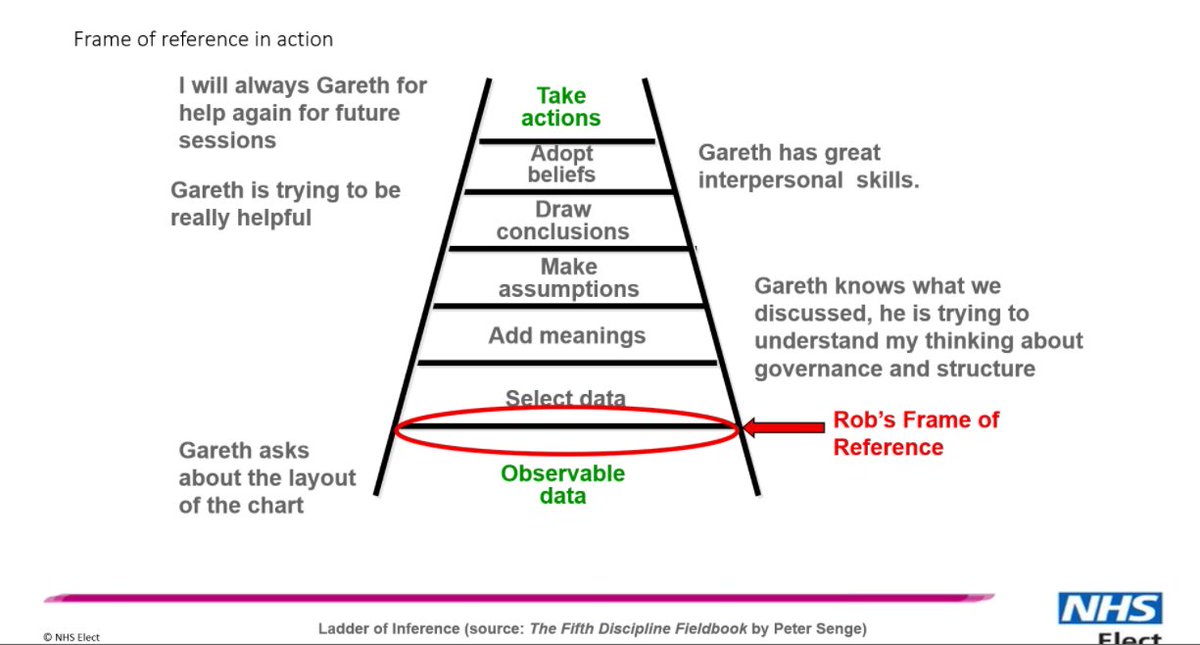
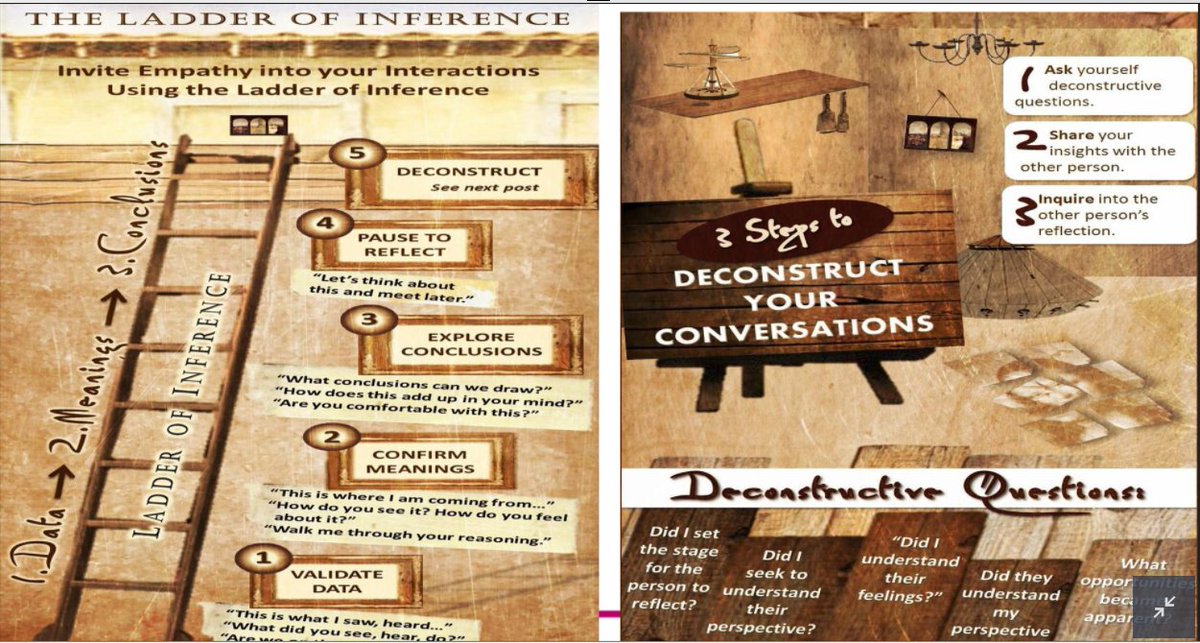
If people who were enthusiastically involved in change previously are now unhappy about new changes.... it is possible that their involvement and investment was in the original change. Are we really fixing the problem or sticking a plaster on it
#QITwitter
#QITwitter
@GarethCorser commented that when we respond to EVENTS we develop good crisis managers. And a culture of a quick fix. But not necessarily a sustainable one.
He shared the Iceberg model and encouraged looking at patterns, structures and mental models too (see images)
#QITwitter

He shared the Iceberg model and encouraged looking at patterns, structures and mental models too (see images)
#QITwitter
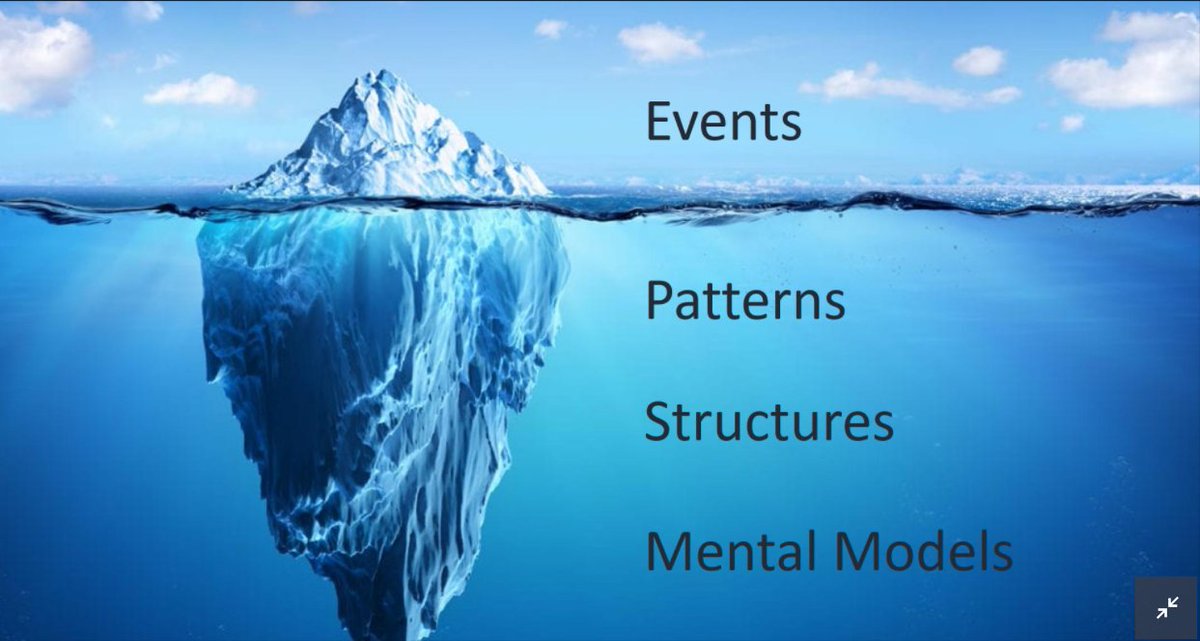
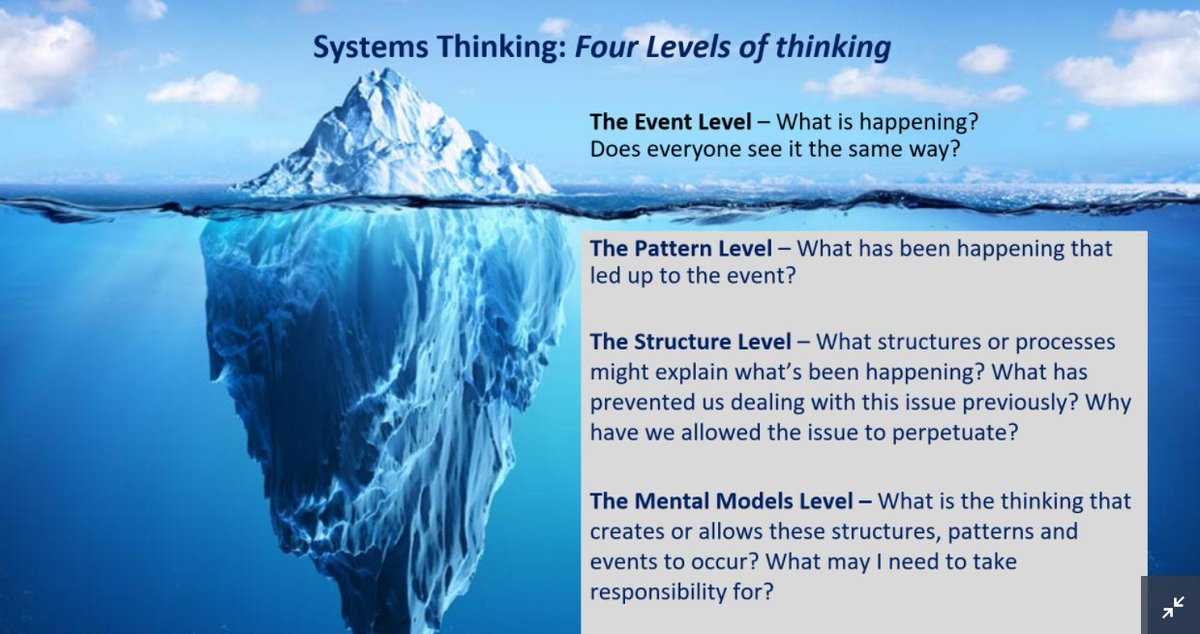
Then in a moment of serendipity/synchronicity, after learning about Causal Loop diagrams with @desbrown67 yesterday, I was introduced to them again today. They show the reciprocal influence created by the relationships of each part of the system.
#QITwitter


#QITwitter
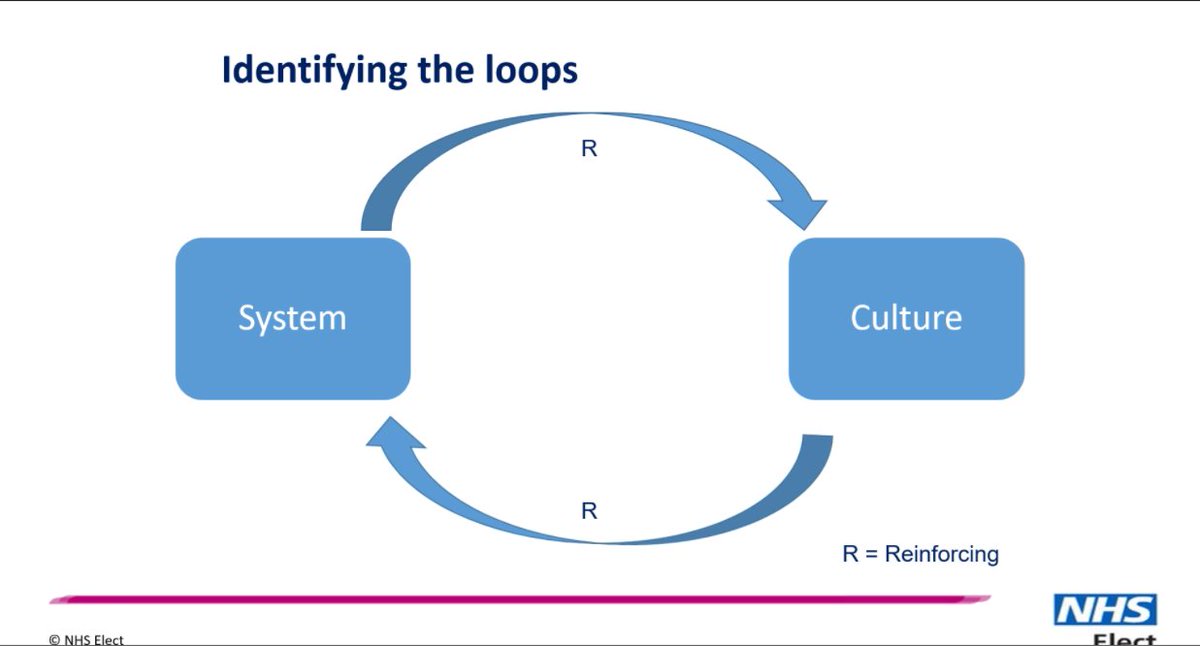
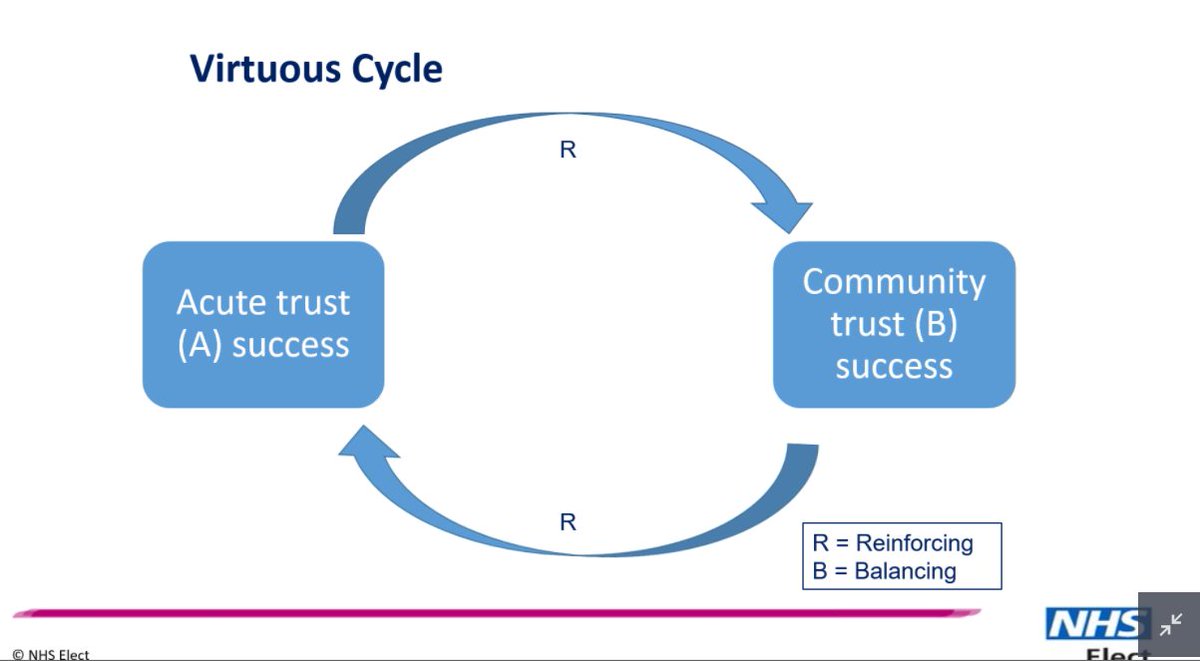
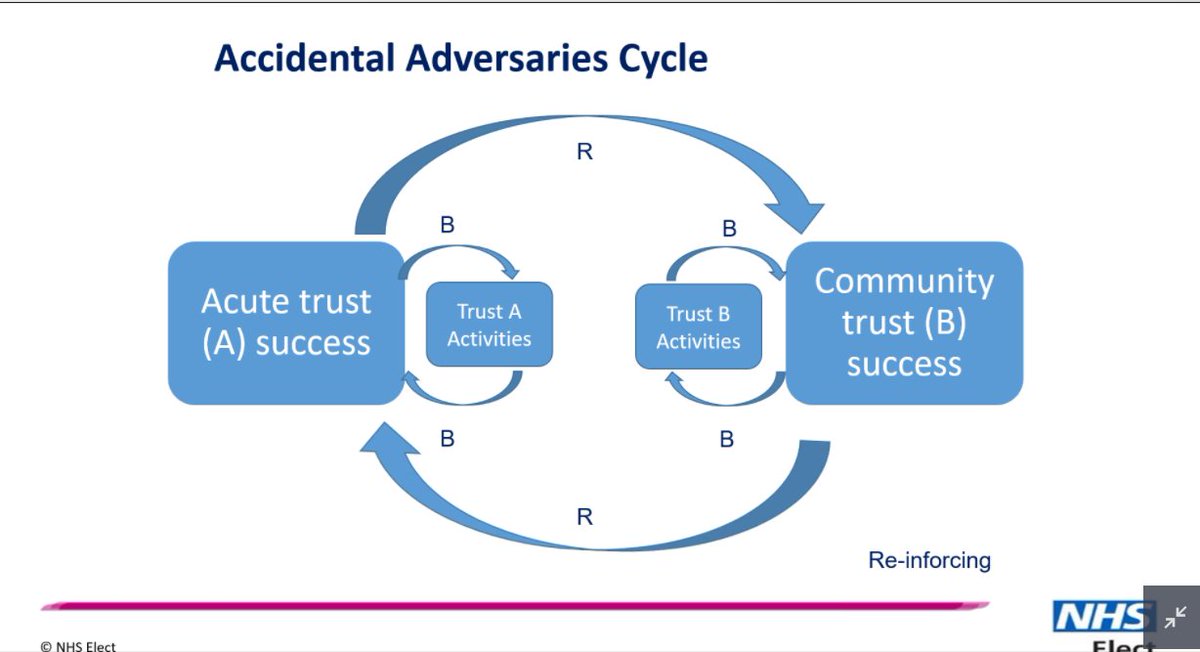
So in a system there is not just linear cause and effect but circular reinforcing and balancing relationships.
#QITwitter
#QITwitter
We need to consider:
conditions
structures
behaviours
mental models (bias/assumption etc)
Instead of asking how can we solve this problem?
Ask...what conditions, structures, behaviours & mental models are allowing the problem to continue to exist?
#QITwitter
conditions
structures
behaviours
mental models (bias/assumption etc)
Instead of asking how can we solve this problem?
Ask...what conditions, structures, behaviours & mental models are allowing the problem to continue to exist?
#QITwitter
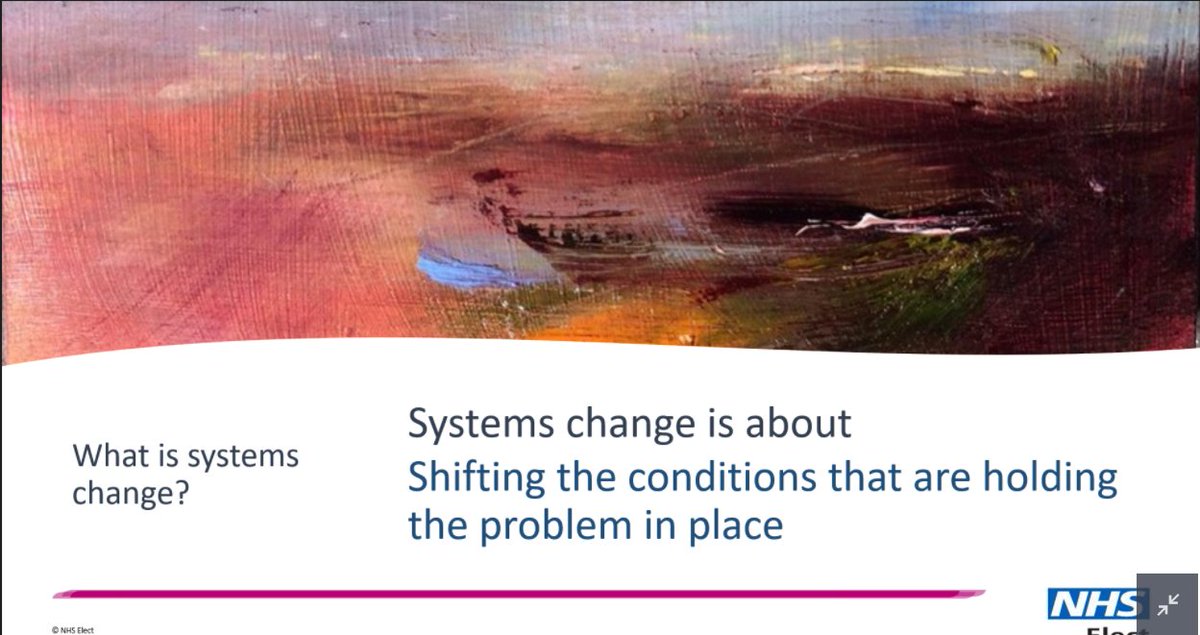
QI often operates in the first level
Considering psychology for change/improvement and agency for change can move us into the second level #S4CA @Psychology4I
Systems change can move us to the third level.
Where are you operating?
#QITwitter
Considering psychology for change/improvement and agency for change can move us into the second level #S4CA @Psychology4I
Systems change can move us to the third level.
Where are you operating?
#QITwitter
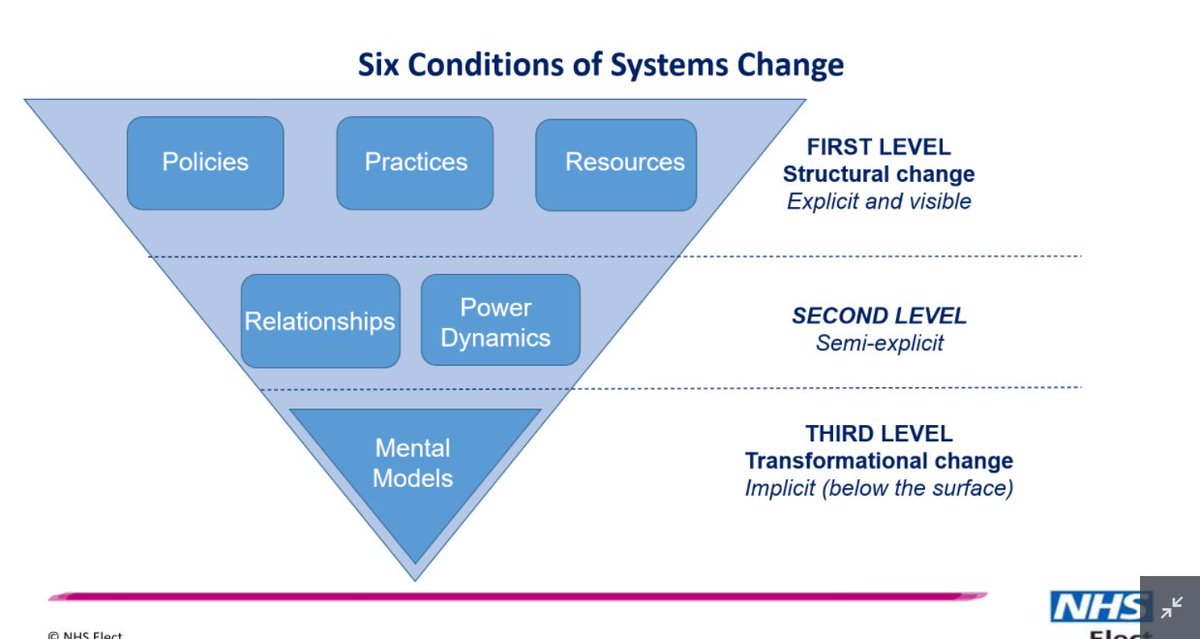
The hierarchy of effectiveness shows that changes in level one are less effective or sustainable that changes in levels two and three.
How can you use the hierarchy of effectiveness when considering which of your change ideas to test?
#QITwittere
How can you use the hierarchy of effectiveness when considering which of your change ideas to test?
#QITwittere
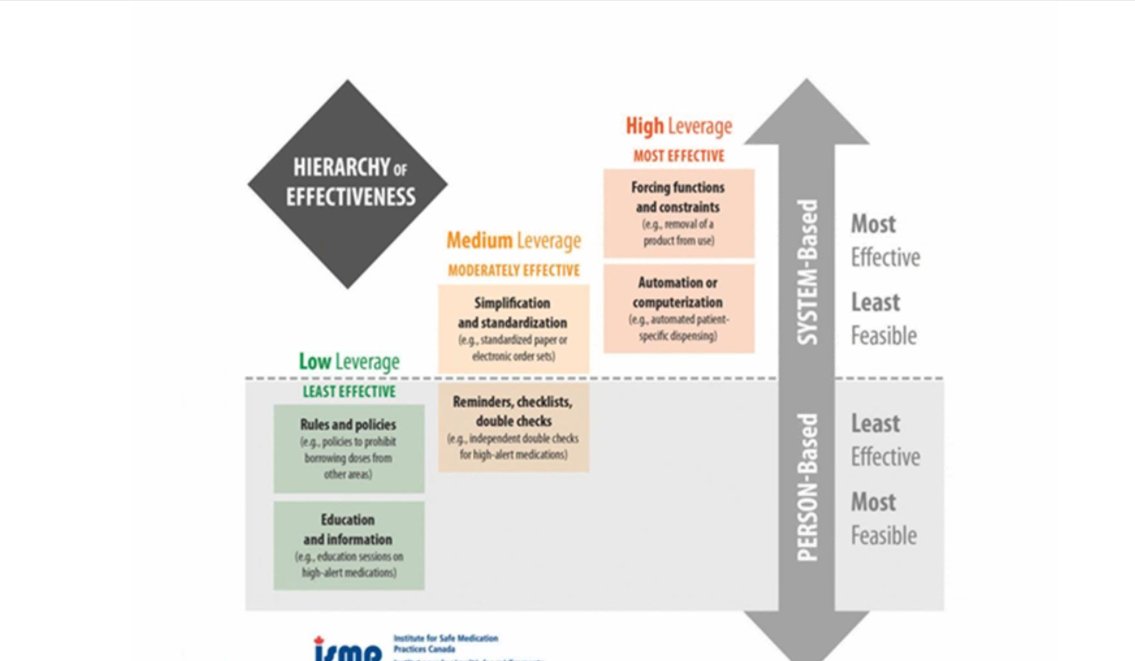
And this tweet concludes my learning & sharing from the fabulous @NHSElect Systems Thinking in QI webinar!
I would absolutely recommend if you work in improvement or change that you attend / watch the recording if like me your systems thinking knowledge was limited.
#QITwitter


I would absolutely recommend if you work in improvement or change that you attend / watch the recording if like me your systems thinking knowledge was limited.
#QITwitter
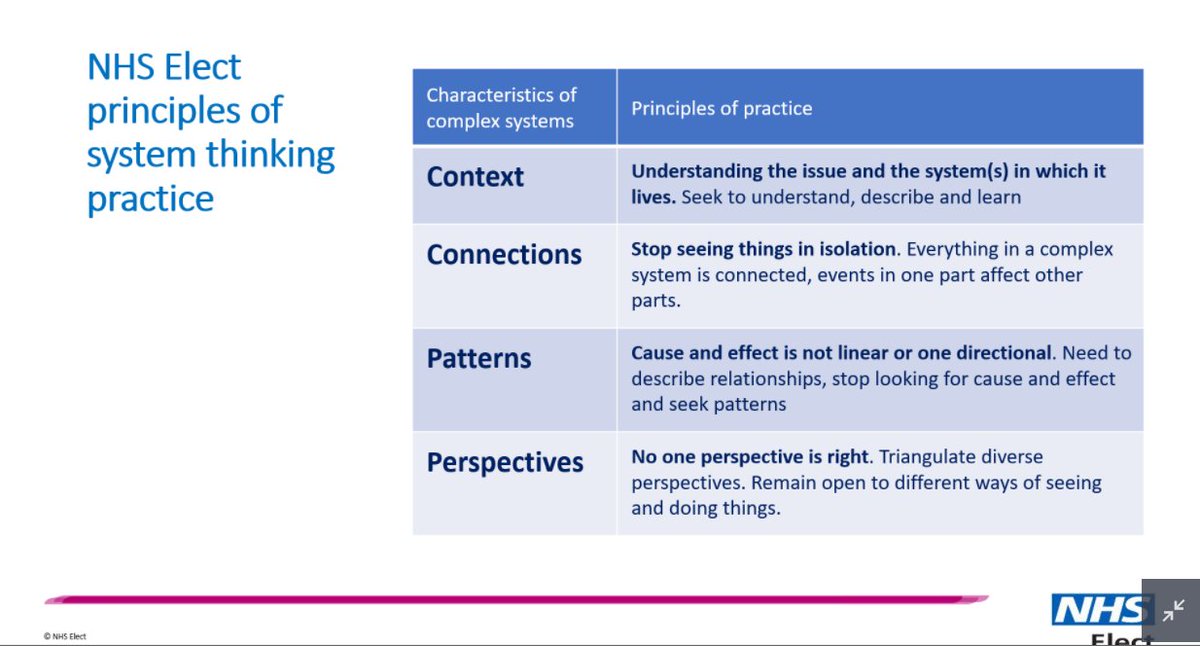
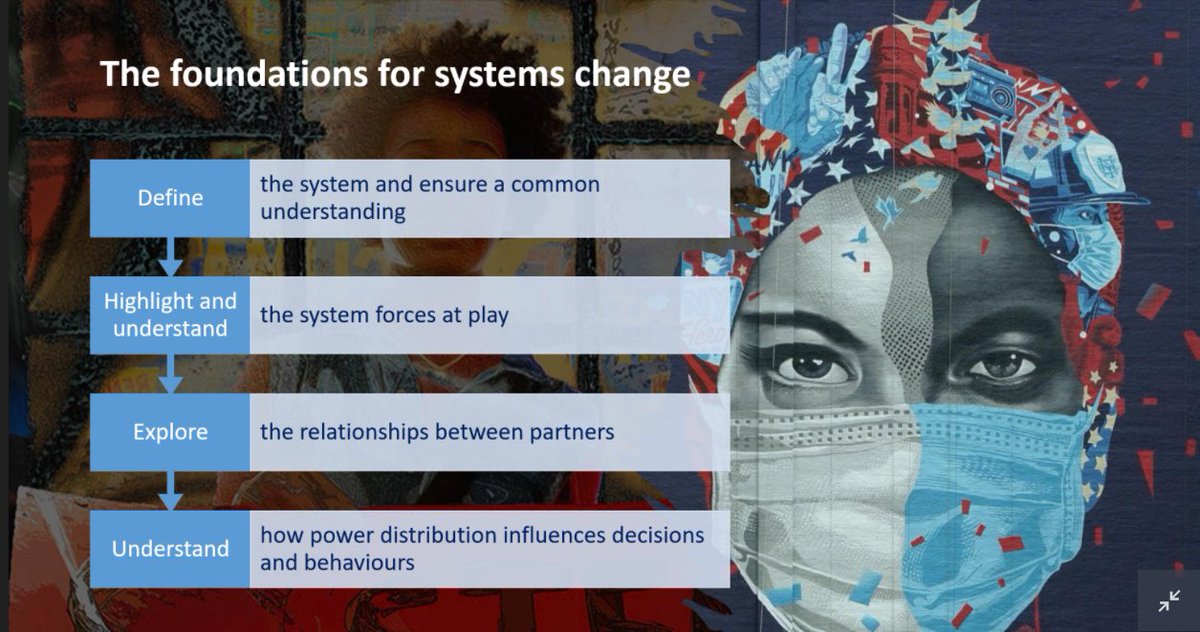
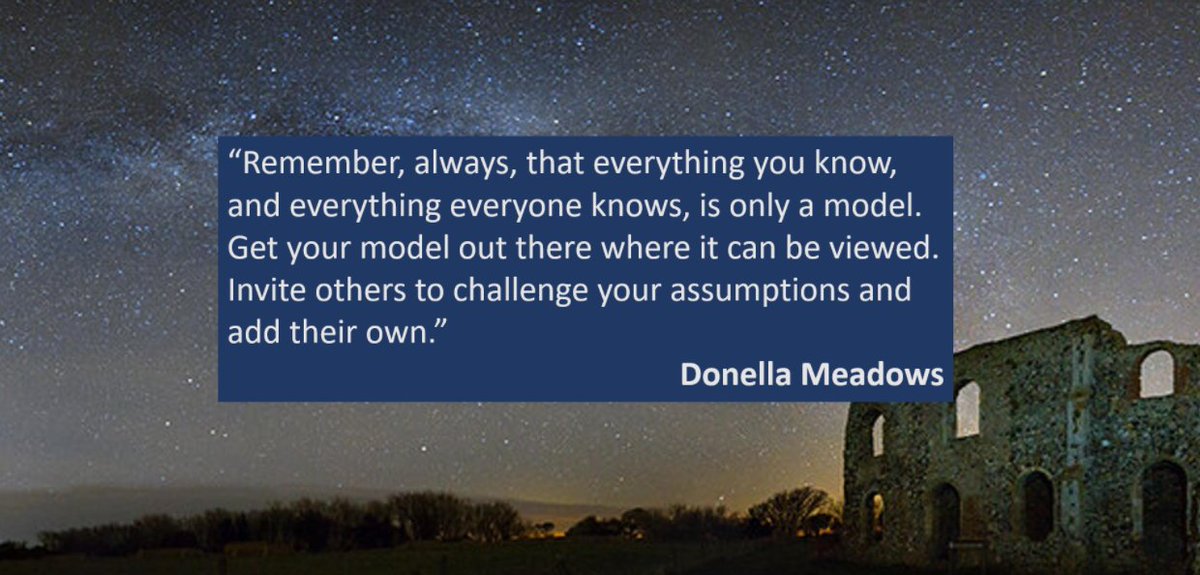
@threadreaderapp unroll
• • •
Missing some Tweet in this thread? You can try to
force a refresh


